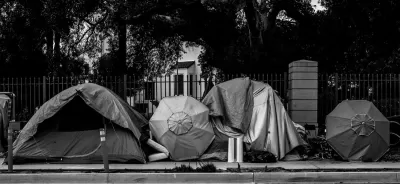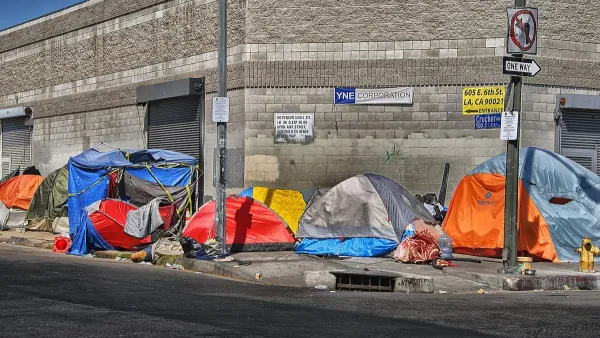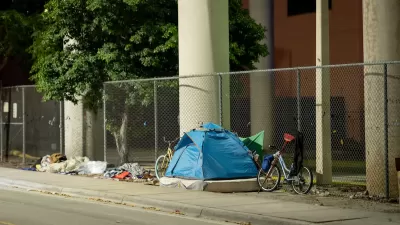The president pushed for sweeping crackdowns and the possible internment of people experiencing homelessness. To see what's coming, we should look to what states have already done.

Louisiana's controversial handling of homelessness during the Super Bowl — spending $17.5 million to bus people to an unheated warehouse — may signal a troubling shift in how cities address visible homelessness. Roshan Abraham of Shelterforce and Next City reveals growing momentum for more aggressive approaches nationwide.
The move comes as HUD Secretary Scott Turner refuses to condemn the use of detention camps for people experiencing homelessness. Instead, Turner has criticized the evidence-based Housing First model, raising concerns among advocates about federal policy shifts.
Cities are already testing new tactics:
- San Francisco and Portland opening sanctioned encampments with strict rules
- New York City expanding involuntary psychiatric holds
- California launching CARE Courts for mental health treatment
- Fremont, California criminalizing assistance to people living outdoors
The chief mechanism for change could be HUD funding, which advocates fear will be used to incentivize states and cities to adopt more aggressive approaches. Those who previously resisted criminalization may soon claim they have no choice.
The privatization of these efforts raises additional concerns. In Louisiana, a disaster recovery contractor ran the “transitional center,” paying staff far more than comparable government positions while conditions remained poor.
For urban planners and policymakers, these developments signal a potential sea change in how American cities handle homelessness—one that prioritizes removal and containment over evidence-based solutions.
FULL STORY: Trump Wants to Force Homeless People into ‘Tent Cities.’ Can He?

Maui's Vacation Rental Debate Turns Ugly
Verbal attacks, misinformation campaigns and fistfights plague a high-stakes debate to convert thousands of vacation rentals into long-term housing.

Planetizen Federal Action Tracker
A weekly monitor of how Trump’s orders and actions are impacting planners and planning in America.

In Urban Planning, AI Prompting Could be the New Design Thinking
Creativity has long been key to great urban design. What if we see AI as our new creative partner?

King County Supportive Housing Program Offers Hope for Unhoused Residents
The county is taking a ‘Housing First’ approach that prioritizes getting people into housing, then offering wraparound supportive services.

Researchers Use AI to Get Clearer Picture of US Housing
Analysts are using artificial intelligence to supercharge their research by allowing them to comb through data faster. Though these AI tools can be error prone, they save time and housing researchers are optimistic about the future.

Making Shared Micromobility More Inclusive
Cities and shared mobility system operators can do more to include people with disabilities in planning and operations, per a new report.
Urban Design for Planners 1: Software Tools
This six-course series explores essential urban design concepts using open source software and equips planners with the tools they need to participate fully in the urban design process.
Planning for Universal Design
Learn the tools for implementing Universal Design in planning regulations.
planning NEXT
Appalachian Highlands Housing Partners
Mpact (founded as Rail~Volution)
City of Camden Redevelopment Agency
City of Astoria
City of Portland
City of Laramie





























